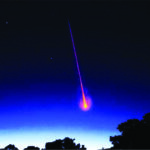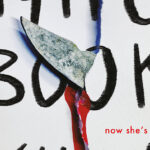Home »

Could Bambi be bringing COVID-19 to town?
 “Perceptions,” by Gerry Warner
“Perceptions,” by Gerry Warner
Op-Ed Commentary
Just what we don’t want to hear – Bambi has got Covid.
With the COVID-19 virus involved in the deaths of more than 30,000 Canadians the past two years and more than 5.6 million deaths worldwide, the deadly pandemic isn’t over even as some hopeful people and epidemiologists speculate the virus is on the threshold of becoming endemic and treatable with drugs similar to what people take during flu season.
Not yet, is about all I can say about that possibility.
According to Global News, the first Covid-infected deer cases occurred in the northern US last November with one study of 283 white-tailed deer in Iowa finding that one-third of the sampled ungulates had evidence of COVID-19 infection. The researchers said the infections most likely resulted from multiple deer-to-deer and human-to-deer transmissions.
Another study in May 2021 by the US Department of Agriculture found antibodies to the Sars-CoV-2 virus in 40 percent of the 385 wild deer they sampled in four northern states.
Initially it was believed there were no Covid deer in Canada. But that all changed later in November 2021when Sars-CoV-2 was found by scientists in three white-tailed deer in the Eastern Townships of Quebec.
So far, there’s no other evidence of the virus in Canadian deer, but a major study has been launched to determine if the Canadian deer population is COVID-19 free.
Catherine Soos, a specialist in wildlife health with Environment Canada, told CBC, “Our objective in initiating this Canada-wide surveillance of SARS-CoV-2 was to see if it spreads from human to wildlife and if it does, what are the impacts on wildlife populations.”
Fears are also growing that if the infection spreads, deer could act as a “reservoir” to infect other animal species and ultimately people.
“That’s what we’re worried about, because if that’s the situation then you can have this animal reservoir that we can get exposed to regardless of what’s going on with regards to control in people,” said Scott Weese, an infectious disease veterinarian from the Ontario Veterinary College at the University of Guelph. Deer infected with COVID-19 could also be a source of new variants, he added.
And what does all this mean for cities like Cranbrook where COVID-19 and Omicron infections are already strongly present and where the community is overrun with deer?
You don’t have to be a rocket scientist to answer that one!
Cranbrook is also home to a high percentage of hunters who interact with deer in ways that could be dangerous to them, according to Environment and Climate Change Canada. The agency warns hunters to wear a mask if they handle respiratory tissues and fluids from deer and avoid splashing and spraying any fluids from those tissues.
Raw deer carcasses should be kept away from ready- to- eat food and cooked to a minimum internal temperature of 160 C.
The fact that covid-infected deer are in one Canadian province and several northern US border states certainly gives pause to think about the whole deer issue including urban deer, a polarized and volatile issue in deer-saturated cities like Cranbrook and many other B.C. communities and cities around North America.
Should Bambi have unfettered access to our communities destroying our flowers, gardens and trees as well as threatening pedestrians on our sidewalks and dumping their scat on our manicured lawns and driveways? I certainly don’t think so and I believe a solid majority of Cranbrook citizens feel the same way.
But a fanatical minority of others think otherwise and is holding the majority of Cranbrookians hostage. The city, to its credit, has worked diligently on this issue and has spent tons of taxpayers’ money doing so. And this is grossly unfair because wildlife is a provincial jurisdiction, yet all Victoria has done about it is to crawl under a rock.
Perhaps if the pandemic continues Victoria might find its backbone.
e-KNOW file photo
– Gerry Warner is a retired journalist, who as a child, cried when he watched the movie “Bambi.”







